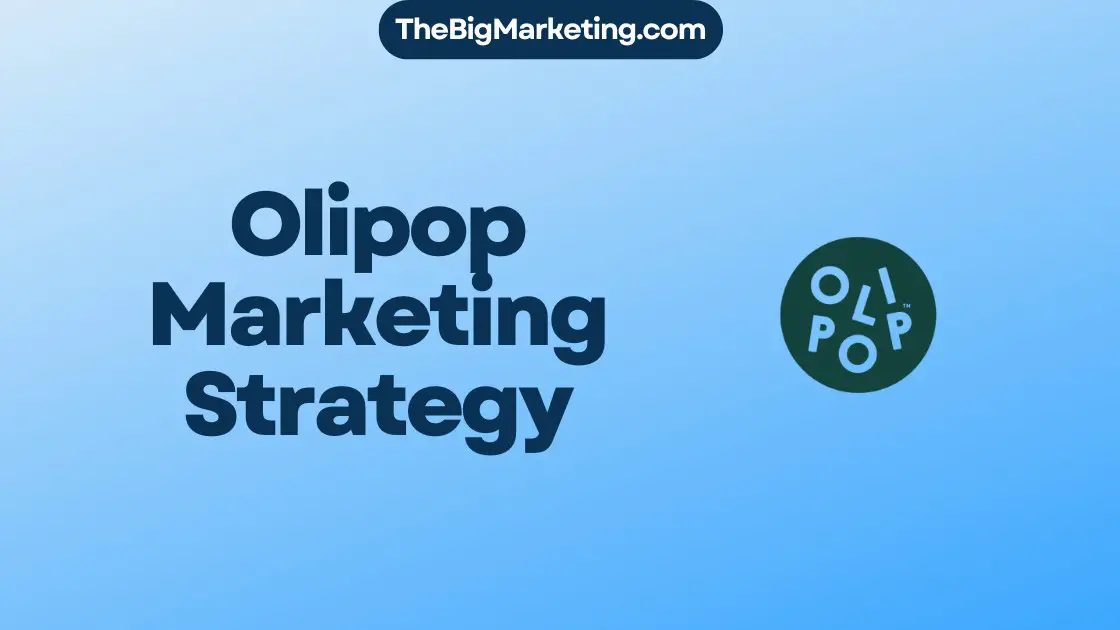In the world of marketing, SQL stands for Sales Qualified Lead. This term refers to a prospective customer that has been vetted by the marketing team and is ready to be passed on to the sales team for further engagement. SQLs are typically individuals or companies that have shown a high level of interest in the product or service being offered. They have reached a stage in the buyer’s journey where they are ready to have a sales conversation and potentially make a purchase.
Key Takeaways:
- SQL stands for Sales Qualified Lead in the marketing world.
- SQLs are prospective customers ready for sales engagement.
- SQLs have shown a high level of interest in the product or service.
- They have reached a stage where they are ready to make a purchase.
- Identifying SQLs allows for more efficient lead nurturing and sales efforts.
Understanding MQLs and SQLs in the Sales Process
In the sales process, two important terms are commonly used: MQLs (Marketing Qualified Leads) and SQLs (Sales Qualified Leads). These terms refer to different stages of lead qualification and signify a lead’s readiness to transition from the marketing team to the sales team.
MQLs represent leads who have displayed some level of interest in the product or service but may not yet be prepared to make a purchase. They are still in the nurturing phase of the buyer’s journey, where they require further engagement and education to become sales-ready.
SQLs, on the other hand, are leads that have undergone a thorough vetting process by the marketing team. They have demonstrated a high level of interest and intent to purchase, making them ready to have a sales conversation. SQLs are considered to be prospects who are more likely to convert into customers and require immediate attention from the sales team.
In summary, MQLs are leads that have shown interest but are not yet ready to buy, while SQLs are leads that have been qualified and are ready for a sales conversation.
By understanding the differences between MQLs and SQLs, businesses can effectively prioritize their sales efforts and allocate resources accordingly. Furthermore, a clear distinction between MQLs and SQLs allows for more targeted and personalized communication, ensuring a seamless transition from marketing to sales.
The Difference Between MQLs and SQLs
In the world of marketing, it is essential to understand the difference between MQLs (Marketing Qualified Leads) and SQLs (Sales Qualified Leads). While both terms relate to lead qualification, they represent distinct stages in the buyer’s journey and indicate the readiness of a lead to progress from marketing to sales.
An MQL refers to a lead that has shown some level of interest in a product or service. However, MQLs may still be in the research phase and not yet ready to have a sales conversation. These leads require further nurturing from the marketing team to guide them through the buying process. MQLs often engage with marketing content, download resources, or show specific behaviors that indicate their interest.
On the other hand, an SQL represents a lead that has not only shown interest but has also reached a stage where they are ready to have a sales conversation. SQLs have demonstrated a high level of interest and intent to purchase. They have typically been thoroughly vetted by the marketing team and are considered sales-ready. This means they have met specific criteria, such as showing serious consideration, having the budget, or having a high likelihood to buy.
The key difference between MQLs and SQLs lies in the level of readiness to make a purchase. MQLs are more focused on research and education, while SQLs are actively considering making a buying decision. By distinguishing between these two types of leads, marketing and sales teams can align their efforts, optimize resource allocation, and deliver more personalized experiences, ultimately driving higher conversion rates and revenue.
Comparing MQLs and SQLs
| Criteria | MQLs | SQLs |
|---|---|---|
| Level of Interest | Showing some interest in the product or service | Demonstrating a high level of interest and intent to purchase |
| Readiness to Purchase | Still in the research phase, not yet ready for a sales conversation | Ready to have a sales conversation and potentially make a purchase |
| Nurturing Required | May need further nurturing from the marketing team | Ready for sales engagement, no additional nurturing necessary |
| Main Goal | Education, building awareness, and trust | Conversion, closing a sale |
Understanding the difference between MQLs and SQLs is crucial for optimizing lead management and the overall sales and marketing funnel. By effectively evaluating lead readiness and providing the right level of engagement, businesses can develop a targeted approach that increases efficiency, improves conversion rates, and maximizes revenue potential.
The Importance of Differentiating Between MQLs and SQLs
When it comes to sales and marketing efforts, it is crucial to differentiate between MQLs (Marketing Qualified Leads) and SQLs (Sales Qualified Leads). Making this distinction allows for more efficient lead nurturing and sales strategies, ultimately leading to higher conversion rates and better business outcomes.
Accurately identifying and categorizing leads as MQLs or SQLs enables sales teams to prioritize their efforts and focus on leads that are more likely to convert. By dedicating their time and resources to leads that have already been vetted and shown a higher level of interest, sales reps can increase their efficiency and effectiveness in closing deals.
Moreover, distinguishing between MQLs and SQLs provides valuable insights into the performance of marketing campaigns and lead generation strategies. By tracking the conversion rates from MQLs to SQLs, marketing teams can gauge the effectiveness of their efforts and make data-driven decisions to optimize their tactics. This information helps marketers refine their targeting, messaging, and lead generation techniques, resulting in improved campaign performance and higher ROI.
To illustrate the importance of differentiating between MQLs and SQLs, consider the following table:
| Key Metrics | MQLs | SQLs |
|---|---|---|
| Conversion Rate | 25% | 65% |
| Time Spent on Nurturing | 30 days | 7 days |
| Average Deal Size | $5,000 | $15,000 |
This table demonstrates the impact of differentiating between MQLs and SQLs on key metrics. The conversion rate from MQL to SQL is significantly higher, indicating that SQLs are more likely to convert into customers. Additionally, the time spent on nurturing SQLs is much less compared to MQLs, allowing sales teams to focus their efforts on leads that are ready to make a purchasing decision. Finally, the average deal size for SQLs is higher, suggesting that SQLs have a higher potential value for the business.
Therefore, by recognizing the importance of distinguishing between MQLs and SQLs, sales and marketing teams can optimize their lead nurturing and customer acquisition processes, resulting in higher conversion rates, improved campaign performance, and ultimately, greater business success.
Moving a Lead from MQL to SQL
When it comes to the sales process, moving a lead from MQL to SQL requires careful consideration of various factors. One of the key methods used in determining the readiness of a lead is lead scoring. This involves assigning numerical values to different actions and behaviors exhibited by the lead, such as engagement with marketing content, website visits, and interactions with sales materials.
Lead behavior also plays a crucial role in determining when a lead is ready to transition from MQL to SQL. Factors such as the number of times a lead has converted on offers and the stage in the buying cycle can provide valuable insights into their level of engagement and intent to make a purchase.
Additionally, the likelihood to buy is an important consideration. This involves evaluating factors such as the lead’s need for the product or service, their budget, and their pain points. By assessing these indicators, marketing and sales teams can make informed decisions on whether a lead is ready to be passed on to the sales team as a SQL.
Lead Scoring Criteria Example:
| Lead Behavior | Score |
|---|---|
| Website Visit | 5 |
| Email Opened | 3 |
| Whitepaper Downloaded | 10 |
| Webinar Attendance | 15 |
By implementing a robust lead scoring system and carefully evaluating lead behavior and likelihood to buy, marketing and sales teams can ensure an efficient and seamless transition from MQL to SQL. This strategic approach helps maximize resources, improve lead conversion rates, and ultimately drive revenue.
Incorporating Leads Into the Sales Process
Once a lead has been identified as an SQL, it is crucial to seamlessly incorporate them into the sales process. This includes a smooth handoff from the marketing team to the sales team, ensuring that all relevant information about the lead is effectively communicated. By prioritizing a lead handoff process, organizations can maximize their chances of conversion and deliver a positive customer experience.
Understanding the Lead Handoff Process
The lead handoff process involves the transfer of responsibility for a lead from the marketing team to the sales team. This transition is essential to ensure that the right members of the sales team can engage with the lead and continue the sales journey.
During the lead handoff, it is vital for the marketing team to provide the sales team with comprehensive information about the lead. This includes details such as the lead’s contact information, interactions with marketing materials, previous engagement, and any specific requirements or preferences they have expressed.
By equipping the sales team with this knowledge, they can tailor their sales approach to meet the lead’s specific needs and interests. This personalization can significantly increase the chances of converting the lead into a customer.
Effective Lead Incorporation
To effectively incorporate leads into the sales process, organizations can follow these best practices:
- Establish strong communication channels between the marketing and sales teams to facilitate a seamless lead handoff.
- Ensure the marketing team collects and provides detailed information about the lead, including their interests, preferences, and interactions with marketing materials.
- Implement a standardized process for lead handoff, ensuring that all relevant information is documented and easily accessible to the sales team.
- Encourage collaboration and communication between sales and marketing teams throughout the sales process to gather feedback and optimize lead nurturing strategies.
- Regularly review and update the lead handoff process to adapt to changing market dynamics and customer preferences.
By incorporating leads into the sales process effectively, organizations can streamline their sales efforts, increase conversion rates, and ultimately drive revenue growth.
| Benefits of Incorporating Leads into the Sales Process | Incorporating Leads into the Sales Process |
|---|---|
| 1. Enhanced lead nurturing | 1. Establish strong communication channels between marketing and sales teams |
| 2. Improved conversion rates | 2. Collect and provide detailed information about the lead |
| 3. Personalized sales approach | 3. Implement a standardized lead handoff process |
| 4. Efficient use of resources | 4. Encourage collaboration and communication between sales and marketing teams |
| 5. Positive customer experience | 5. Regularly review and update the lead handoff process |
The Role of SQL in Marketing Data Analysis
SQL (Structured Query Language) plays a crucial role in marketing data analysis. It empowers marketers with the ability to query and retrieve valuable information from databases, enabling them to gain valuable insights into customer behavior, track sales trends, and identify new market opportunities. By using SQL, marketers can efficiently analyze large amounts of data and make data-driven decisions to optimize their marketing strategies.
One of the key advantages of SQL is its ability to facilitate data cleaning, ensuring that marketers are working with accurate and reliable data. It allows for the extraction, transformation, and loading (ETL) of data, ensuring that the information is consistent and ready for analysis. With clean data, marketers can confidently derive meaningful insights that drive their marketing efforts forward.
Data visualization is another area where SQL proves invaluable for marketers. SQL enables marketers to generate visually compelling charts, graphs, and dashboards that effectively communicate complex data patterns and trends. This allows marketing teams to visualize key performance indicators (KPIs) and make informed decisions based on data analysis.
Furthermore, SQL facilitates correlation analysis, which helps marketers identify relationships between different factors and variables. By analyzing correlations, marketers can uncover hidden patterns and connections that can inform their marketing strategies. For example, by determining the correlation between customer demographics and purchasing behavior, marketers can tailor their campaigns to specific target audiences with higher accuracy.
SQL also provides marketers with the ability to perform advanced data queries and calculations. With SQL’s powerful analytical functions, marketers can perform complex calculations, segment data, and generate customized reports. This empowers them to dive deep into their data, uncovering valuable insights that can drive their marketing campaigns forward.
In summary, SQL is an indispensable tool for marketing data analysis. Its ability to query and retrieve data, clean and visualize data, perform correlation analysis, and enable advanced calculations provides marketers with the necessary tools to make data-driven decisions and optimize their marketing strategies. By leveraging SQL in marketing data analysis, marketers can gain valuable insights that allow them to stay ahead in an increasingly competitive marketplace.
Benefits of Using SQL for Marketers
Using SQL (Structured Query Language) offers numerous benefits for marketers. SQL allows marketers to query data faster, enabling them to retrieve information from databases efficiently. By harnessing the power of SQL, marketers can access and analyze large amounts of data with ease, providing valuable insights for their marketing campaigns.
Query Data Faster
One of the primary benefits of using SQL for marketers is the ability to query data faster. With SQL, marketers can retrieve specific information from databases quickly and efficiently. This enables them to access the data they need in a timely manner, improving productivity and decision-making processes.
Automated Reporting System
SQL also facilitates the creation of an automated reporting system for marketers. Instead of manually generating reports, SQL allows marketers to automate this process. By setting up SQL queries to extract relevant data, marketers can schedule reports to be generated automatically, saving time and effort.
Better Business Decisions
Using SQL for data analysis empowers marketers to make better business decisions. With SQL, marketers can gain insights into audience behavior, product performance, and the effectiveness of marketing campaigns. By analyzing data from various sources, marketers can identify trends, patterns, and correlations that inform strategic decision-making processes.
Data Analysis and Visualization
SQL facilitates in-depth data analysis and visualization for marketers. By utilizing SQL queries, marketers can analyze large datasets and extract meaningful information. Whether it’s customer segmentation, market analysis, or campaign performance evaluation, SQL provides the tools and capabilities to gain actionable insights. Additionally, with data visualization techniques, marketers can effectively communicate these insights to stakeholders and teams.
Correlation Analysis and Data Cleaning
SQL enables correlation analysis, allowing marketers to identify relationships and connections within their data. By uncovering correlations between variables, marketers can understand how different factors impact their marketing efforts and make informed adjustments accordingly. Furthermore, SQL can be used for data cleaning, ensuring that marketing data is accurate, consistent, and reliable for analysis.
| Benefits of Using SQL for Marketers |
|---|
| Query data faster |
| Create an automated reporting system |
| Enable better business decisions |
| Facilitate data analysis and visualization |
| Enable correlation analysis and data cleaning |
How Marketing Professionals Can Learn SQL
Learning SQL can be highly advantageous for marketing professionals, despite its potential intimidation factor. Fortunately, there are various effective ways to learn SQL that cater to different learning preferences and levels of experience.
1. Books and Tutorials
One approach is to start with books and online tutorials that cover the basics of SQL commands. These resources provide a comprehensive understanding of SQL principles and syntax, allowing marketers to grasp the fundamentals at their own pace.
2. Classes or Online Courses
For a more structured learning experience, marketing professionals can consider taking classes or enrolling in online courses that offer specialized SQL instruction. These courses provide guided lessons, practical exercises, and assessments to ensure a thorough comprehension of SQL concepts.
3. SoloLearn and Other Coding Communities
An excellent option for beginners in programming, including SQL, is the online platform SoloLearn. SoloLearn offers interactive coding courses specifically tailored to individuals with little to no programming knowledge. It features an engaging learning experience with bite-sized lessons, quizzes, and a supportive community.
Additionally, joining coding communities such as Stack Overflow or GitHub can provide marketing professionals with a valuable network of peers and experts. These communities are excellent resources for finding answers to specific questions, obtaining practical advice, and participating in discussions related to SQL and programming.
By employing any combination of these learning methods, marketing professionals can gradually build their SQL expertise and gain confidence in utilizing SQL for data analysis and marketing automation. Remember, the key to mastering SQL lies in consistent practice and real-world application.
Leveraging SQL for Data Insights in Marketing Campaigns
In today’s data-driven marketing landscape, leveraging SQL (Structured Query Language) for data insights is a powerful strategy for marketers. By using SQL queries, marketers can collect, store, manipulate, and retrieve information from databases, enabling them to gain valuable insights into their audience, products, and marketing campaigns.
One of the key benefits of using SQL for data analysis in marketing campaigns is the ability to monitor sales trends. By analyzing historical sales data, marketers can identify patterns and trends, allowing them to make informed decisions about pricing, promotions, and product offerings.
SQL is also instrumental in tracking product performance. By querying data on product sales, customer feedback, and other relevant metrics, marketers can identify which products are performing well and which may require adjustments or enhancements. This information can drive product development strategies and inform marketing campaigns.
Furthermore, SQL can help marketers identify new market opportunities based on customer behavior analysis. By analyzing customer data such as purchase history, browsing patterns, and demographic information, marketers can identify target segments with high growth potential or discover untapped markets.
With SQL, marketers can analyze large amounts of data quickly and efficiently, leading to more effective targeting and personalized messaging. By understanding customer preferences, behaviors, and needs, marketers can tailor their marketing campaigns to specific segments, increasing the likelihood of engagement and conversion.
Moreover, leveraging SQL for data insights enables marketers to optimize their marketing strategies. By continuously monitoring and analyzing campaign performance data, marketers can make data-driven decisions about budget allocation, channel selection, messaging optimization, and audience targeting. This iterative approach allows marketers to refine their strategies and maximize their campaign’s impact.
To illustrate the benefits of leveraging SQL for data insights in marketing campaigns, consider the following table:
| Marketing Campaign | Conversion Rate | ROI |
|---|---|---|
| Campaign A | 10% | 200% |
| Campaign B | 15% | 250% |
| Campaign C | 8% | 180% |
In this example, analyzing the conversion rates and ROI of different marketing campaigns allows marketers to identify which campaigns are performing well and which may need optimization. By leveraging SQL to query and analyze campaign data, marketers can make data-driven decisions to allocate resources effectively and improve overall campaign performance.
By effectively leveraging SQL for data insights in marketing campaigns, marketers can optimize their targeting, personalize their messaging, and drive favorable business outcomes. SQL empowers marketers to unlock valuable insights from their data, positioning them to make informed decisions and stay ahead in the ever-evolving marketing landscape.
The Power of SQL in Marketing Analytics
SQL (Structured Query Language) is an invaluable tool for marketers when it comes to analyzing data and gaining insights that drive successful marketing strategies. By leveraging the power of SQL, marketers can delve into various data sources, including customer interactions, sales data, and website analytics, to uncover patterns, trends, and correlations. These data-driven insights enable marketers to make informed decisions and optimize their marketing efforts for maximum impact.
One of the key advantages of using SQL in marketing analytics is the ability to segment the audience effectively. By querying the data, marketers can identify specific customer segments based on demographics, behaviors, or preferences. This segmentation allows for targeted marketing campaigns that resonate with the right audience, leading to higher engagement and conversion rates.
Additionally, SQL enables marketers to personalize messaging to individual customers or segments. By analyzing data such as past purchases, browsing history, or engagement patterns, marketers can tailor their communications to deliver relevant and personalized messages. Personalization enhances the customer experience, strengthens brand loyalty, and increases the chances of conversion.
Measuring the effectiveness of marketing campaigns is another crucial aspect of marketing analytics, and SQL plays a significant role in this area as well. By querying the data, marketers can track and analyze key performance indicators (KPIs) such as click-through rates, conversion rates, or customer lifetime value. These insights help marketers assess campaign performance, identify areas for improvement, and make data-driven adjustments to optimize their marketing strategies.
With the power of SQL, marketers can also track the return on investment (ROI) of their marketing efforts. By analyzing data related to marketing spend and customer acquisition costs, marketers can gain valuable insights into the effectiveness and profitability of their campaigns. This information allows for informed budget allocation and the ability to focus resources on strategies that generate the highest ROI.
In summary, SQL is an indispensable tool for marketing analytics. It empowers marketers to analyze data, segment their audience, personalize messaging, measure campaign effectiveness, and track ROI. By leveraging the power of SQL, marketers can unlock valuable insights that drive successful marketing strategies, improve customer engagement, and fuel business growth.
Example Table: Marketing Campaign Performance Metrics
| Campaign | Impressions | Clicks | Conversions | Conversion Rate |
|---|---|---|---|---|
| Campaign A | 100,000 | 5,000 | 500 | 10% |
| Campaign B | 150,000 | 3,000 | 400 | 13.3% |
| Campaign C | 80,000 | 4,500 | 600 | 13.3% |
Conclusion
In summary, SQL, or Structured Query Language, is an invaluable tool in the world of marketing. It enables marketers to efficiently analyze data, gain valuable insights into customer behavior, track sales trends, and optimize marketing campaigns. By incorporating SQL into their data analysis processes, marketing professionals can make data-driven decisions that enhance targeting, personalization, and overall business growth.
The importance of SQL in marketing data analysis cannot be overstated. It empowers marketers to extract and manipulate data from databases, providing them with the means to track campaign effectiveness, identify new market opportunities, and measure return on investment. SQL’s ability to handle large amounts of data swiftly and efficiently is crucial in today’s data-driven marketing landscape.
To stay ahead in the competitive field of marketing, professionals should consider mastering SQL. Its power lies in its ability to unlock valuable insights that improve marketing strategies, optimize targeting, and drive business growth. As data continues to play an increasingly significant role in marketing, a solid understanding of SQL is essential for marketers to truly harness the benefits of data analysis and make informed decisions.






